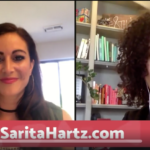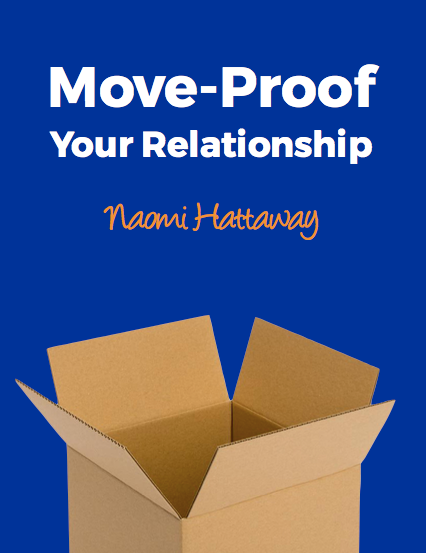Moving to Thailand five years ago was an experience that went beyond my and my husband’s wildest dreams. It was a life-changing journey that challenged us; broadened our horizons; clarified our priorities; allowed us to learn about, see and experience the world; and that led to lifelong connections with others. It was so much more and better than what we could ever have hoped for or imagined.
So it was with the same sense of adventure, excitement, and anticipation that we embarked on a life overseas for the second time last summer–this time to Taiwan, where I was born and where I lived for the first eight years of my life, and where my son would have an opportunity to learn about his heritage and my first language. Again, the possibilities seemed endless, and we were open to any and all new adventures.
But it hasn’t worked out the way we had hoped or envisioned. This past year in Taiwan hasn’t been a difficult transition–quite the opposite–but it has been a struggle in many other ways. Life here hasn’t been a good fit for us. As a result, after months of rumination and vacillation, my husband and I made the decision a few months ago to return to the United States this summer, after having been here for only one year.
Nevertheless, our journey hasn’t been for nothing. In my life thus far, I’ve experienced the world as a third-culture kid and adult, immigrant, expat, and “hidden immigrant,” and my experiences have always taught me valuable lessons. While our latest journey as expats (and hidden immigrant for me) has been unsuccessful, I’ve nevertheless gained some important insight and learned a few repatriation life lessons that will serve me well in the long run.
Repatriation Life Lessons
There’s no failure and no blame
The process of coming to our decision to return home after such a short time wasn’t an easy one. Not only did we feel as if we were letting others down, but we were also disappointed in ourselves. We felt as if we were giving up too easily, as if we had failed in some way. Why is it that so many others have been able to successfully and happily build a life for themselves here when we couldn’t? Don’t we have “what it takes” to do what they’ve done and are doing? Had we been unrealistic and unreasonable with our expectations, given our previous, overwhelmingly positive experience in Thailand? We also wondered what we were teaching our son by giving up so easily.
I felt even more inadequate when I considered that this was, after all, my country of origin, where my extended family live and roots lie, a place that I’m connected to through heritage. I felt guilty for being unable to make a life here, as if I were rejecting myself, my family, and my cultural heritage.
However, after reflecting on it for many, many weeks, I’ve finally made peace with our decision. I’m able to see–most of the time–that many factors affected our experiences and life in Taiwan, and that it simply hasn’t been a good fit for us. Having been brought up to endure situations at the expense of my own happiness, I also feel our actions teach our son to learn to heed his own feelings and instincts, to learn to stand up for his own happiness when no one else is doing so.
Taiwan is not my “home”
Of course, I had always recognized this. I knew that, after being away from Taiwan for over thirty years prior to our move, both the country and I had changed a great deal in the intervening years. But I had lived here for the first eight years of my childhood; I had been surrounded by people from Taiwan and was pretty familiar with Taiwanese culture throughout my childhood in the United States. I expected to be somewhat familiar with the traditions and culture here after we arrived. And I am, and have been, the past ten months that we’ve lived here. Furthermore, many things that I experience, hear, taste, and see here have brought forth memories and stories of my time here as a child, stories that help my husband and son to better understand me and the culture here.
What I didn’t expect is the complete disconnect that I feel with the culture and people here. Despite being familiar with its language and its traditions and rituals, I’ve felt utterly disengaged and detached from Taiwan; it feels so foreign to me, it might as well be another planet that I’m living on. It’s not something I’ve felt visiting other countries in Asia or living in Thailand, so it’s taken me by surprise. It’s true what they say: You can never go home again.
What it really means to be a “hidden immigrant”
When we moved here, I expected there to be some misunderstandings and the need to explain myself when interacting with the locals. After all, while I look like everyone here and somewhat speak their language, my behavior and thinking aren’t quite the same as theirs. What I hadn’t anticipated was how difficult it has been to get people to understand what I am, to overcome the locals’ prejudices and misconceptions that I am “one of them.”
I’ve met very few people who are able to grasp the idea that I am Taiwanese in ethnicity and appearance only, and nothing else. Even after explaining myself and my story to them, most of the locals still insist on treating me as a local and expect me to interact with them as a local, with all the background knowledge and inferences that one would have as a native to a particular culture. This insistence–mixed, perhaps, with some unwillingness–on seeing me as who they want me to be has proven to be extremely frustrating at times. I feel invisible and overlooked. Their insistence on labeling me as who they want me to be, and putting me in a box in which I don’t belong, also has felt offensive and disrespectful to me.
Moreover, while my western friends here wax poetic about how nice, kind, and helpful the locals are, I’ve not been the beneficiary of this type of behavior or treatment. What I’ve learned while living and traveling in Asia is that, generally, the locals aren’t treated as well by other locals as the westerners tend to be. As someone whose appearance is similar to many across Asia, I’m generally treated the same way as the locals, with all the accompanying prejudices and biases.
What it really means to be a Third Culture Kid (TCK)
Growing up as an immigrant and TCK in the United States, I never felt I belonged. I always felt “foreign,” like a temporary visitor. Now, after having lived in two different countries as an adult, I realize that I will probably always feel that way, regardless of where I live, but I also feel perfectly at home with this role.
Having grown up as a TCK has allowed me to be flexible, adaptable, and resourceful. It has enabled me to recognize the transient nature of life, to be able to move on fairly easily when circumstances call for it, to be open to different experiences and situations, and to be accepting of differences. On the other hand, I don’t allow myself to become too attached to any one person or any single place because I know I will be moving on at some point. While I know I will be able to manage and adapt over time, regardless of where I am, I also will likely always feel most at home among others who are also “outsiders.” I will always feel most at home when I feel I belong to no one group while simultaneously belonging to all groups.
My values and priorities
Our time in Thailand helped me to clarify what I want out of life as an individual. But our time in Taiwan not only has further clarified my personal values and priorities, but also my values and priorities as a parent. I have been observing for almost a year now the single-minded focus on academic achievement at all costs on the part of the parents and students at our school; the pressure the kids–even elementary-aged kids–constantly feel from their over-scheduled lives and unrealistic expectations from their parents; and the attention placed on, and the flaunting of, wealth and social status by the parents and their kids. Hobbies and interests outside of school are discouraged, unless they are for furthering one’s chances of academic success and social status.
I want it to be different for my son, which would be more difficult if he continued to be surrounded by this type of thinking and behavior. I want him to be more well-rounded, develop his whole person, be kind and compassionate. I want him to know there is more to life than making a lot of money (though having money can be useful in life). I want him to know there is life beyond school, grades, and the focus on Ivy League schools. I want him to be a global citizen who enjoys and actively participates in all aspects of life.
Similarly, living in Taiwan also has helped me to identify the kind of lifestyle I want. Taiwan is an easy, comfortable, and safe place to build a life without having to take on many of the risks that usually come with living overseas. Life here is convenient, with many products such as food, beauty products, and furniture imported from North America and Europe. Those living here not only have most of the conveniences of the western world, but also the lower cost of living of many Asian countries. Because of these perks, Taiwan attracts many westerners looking for an easy life.
The issue for me is that life here feels too easy, too comfortable. As I’ve said many times this past year, my world opened up while living in Thailand, but it has closed off living in Taiwan. One of the main purposes of living overseas, in my opinion, is to challenge yourself by getting out of your comfort zone, to learn about life, and to grow as a person. I haven’t felt or experienced that this year, which I understand may be due to the fact that I was already familiar with the culture here prior to our move. But we also haven’t found anyone in our social circle who shares our values or our interests in delving into another culture. It would’ve made a big difference in our experience here to have a like-minded community or friend–someone or a group with whom we can share our values, perspective, thoughts.
Taking “home” for granted
Having spent a good part of this past year searching for interesting activities, places, and events for ourselves and for our son, and having come up empty-handed more often than not, I’ve come to realize that we have taken for granted the area where we call home in the U.S. Just in the city that we call home alone, we have access to a variety of events and activities, whether they are religious, kid- or family-friendly, educational, international, or cultural. We have easy and free access to world-class museums as well as beautiful local and national parks. Moreover, the fifty states themselves provide a diverse array of landscapes, geography, climate, environment, and culture for us to explore. While we are busy showing our son the world, we have taken for granted what his own birth country has to offer and neglected to help him better appreciate its beauty and diversity.
Having lived here also has made me appreciate all the more the general creativity, imagination, individualism, and outspoken nature of the American people. It has magnified for me the importance of teaching children to be independent, flexible, and critical thinkers; to learn about and know themselves; and to be able to express themselves.
We are very much looking forward to repatriating and settling down for a while, to seeing our own country from a fresh perspective, and to enjoying it and appreciating it for what it is and what it has to offer.
Author: Ann Kreske
As a Third Culture Kid, I was born in Taiwan, but raised in the United States, and have lived in over ten cities and towns in three different countries in my lifetime. In 2013, my husband and I decided to fulfill our lifelong dream of living abroad, and, together with our son, moved to and lived in Thailand for two years. I felt I had arrived “home” living abroad, and we were all bitten by the travel bug. Formally trained as an educator and lawyer, I have worked in the fields of education, editing, special education and disability rights advocacy, and veterans law.










Comments 5
Thank you for writing this, it has helped me with my current dilemma. I’m finding my latest expat move much harder as I seem to have ended up in a social desert and after 21 months, haven’t find a social group linked to what I like doing. It all looked good on paper and Google before we came here but simply hasn’t worked out, despite lots of effort. At least my partner is adamant that we both have to be happy and will look to move on once the contract is up rather than extend if we really feel we can’t go on here. It is wonderful to have that kind of support from him and helps enormously to know it’s not just me that someone else has had a very similar experience to mine.
Thanks for sharing your story as well, Sue. It’s so important to have our partners’ support in these circumstances. I wish you all the best going forward!
Thanks Ann for sharing your experience. I think it takes great courage to make the kind of decision you made. It is easier to stay put and leave life to ‘fate’ which, sadly I think leads to regrets and ‘if only’s’. Wishing you all the best for your repatriation.
Thank you so much for sharing your experience and the complexities of making this decision. I’m a psychologist working with global citizens and often have people reach out to me when they’re struggling with making the decision of whether to stay or go. I’ve bookmarked your article to be able to share it and discuss it with them in our sessions. Thank you and best of luck with your next chapter!
Wow – excellent article! The TCK pieces are right on – only in my case it’s in the U.S. But I also resonate with your eyes opening to where you live in the U.S. As we prepare for yet another move to the Middle East, I’m seeing the place we have called Home here with new eyes and just how special it is.